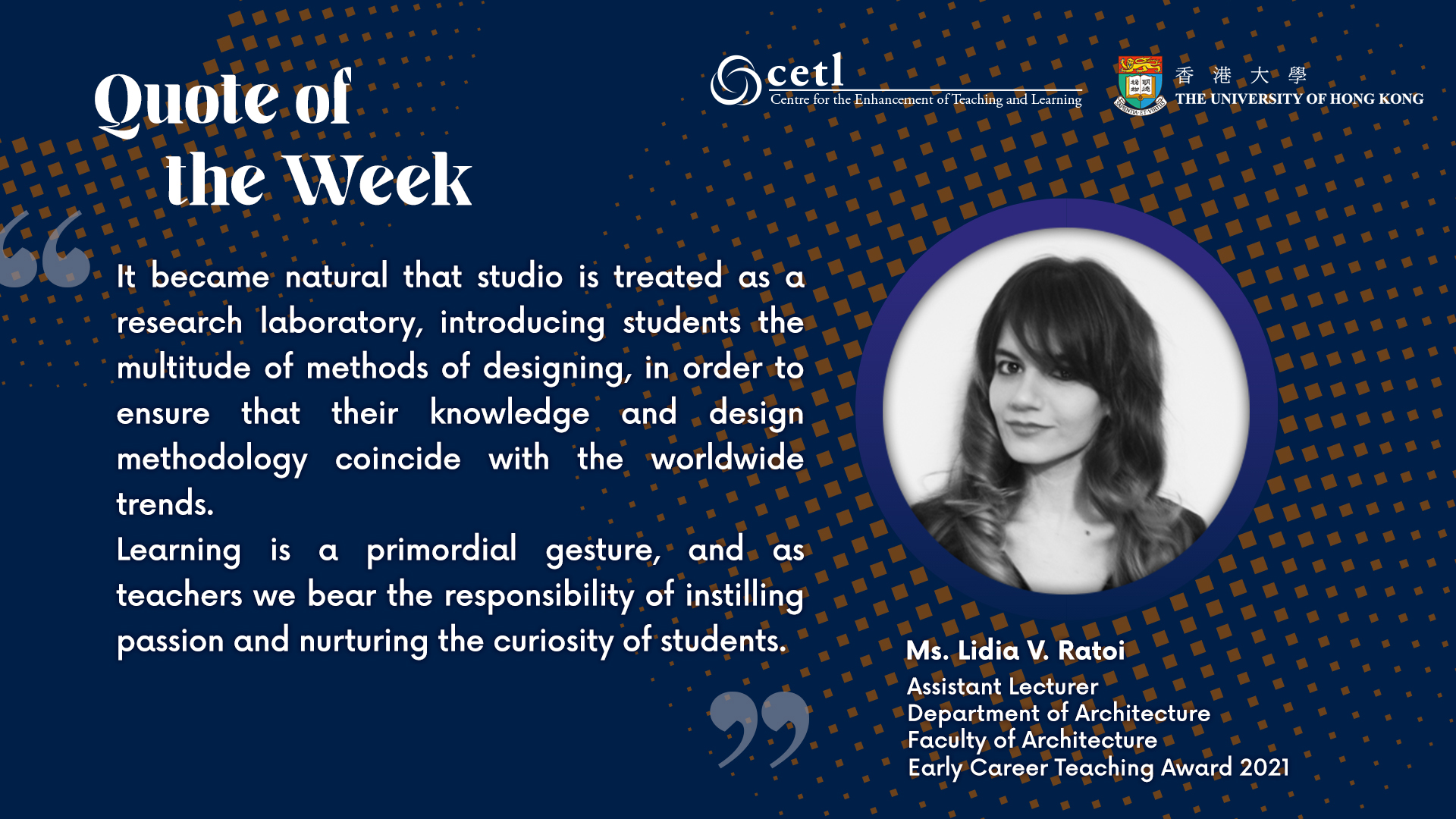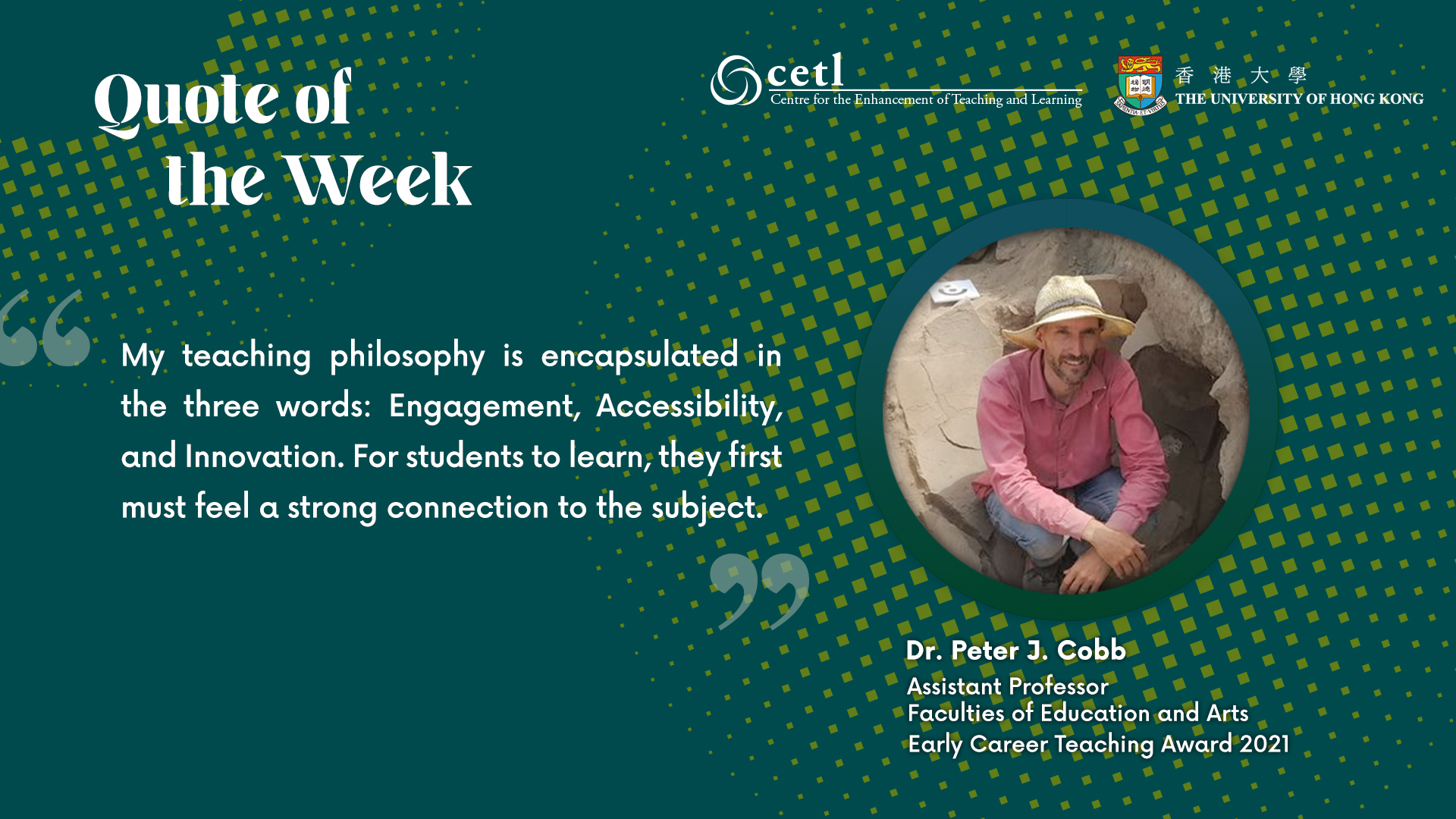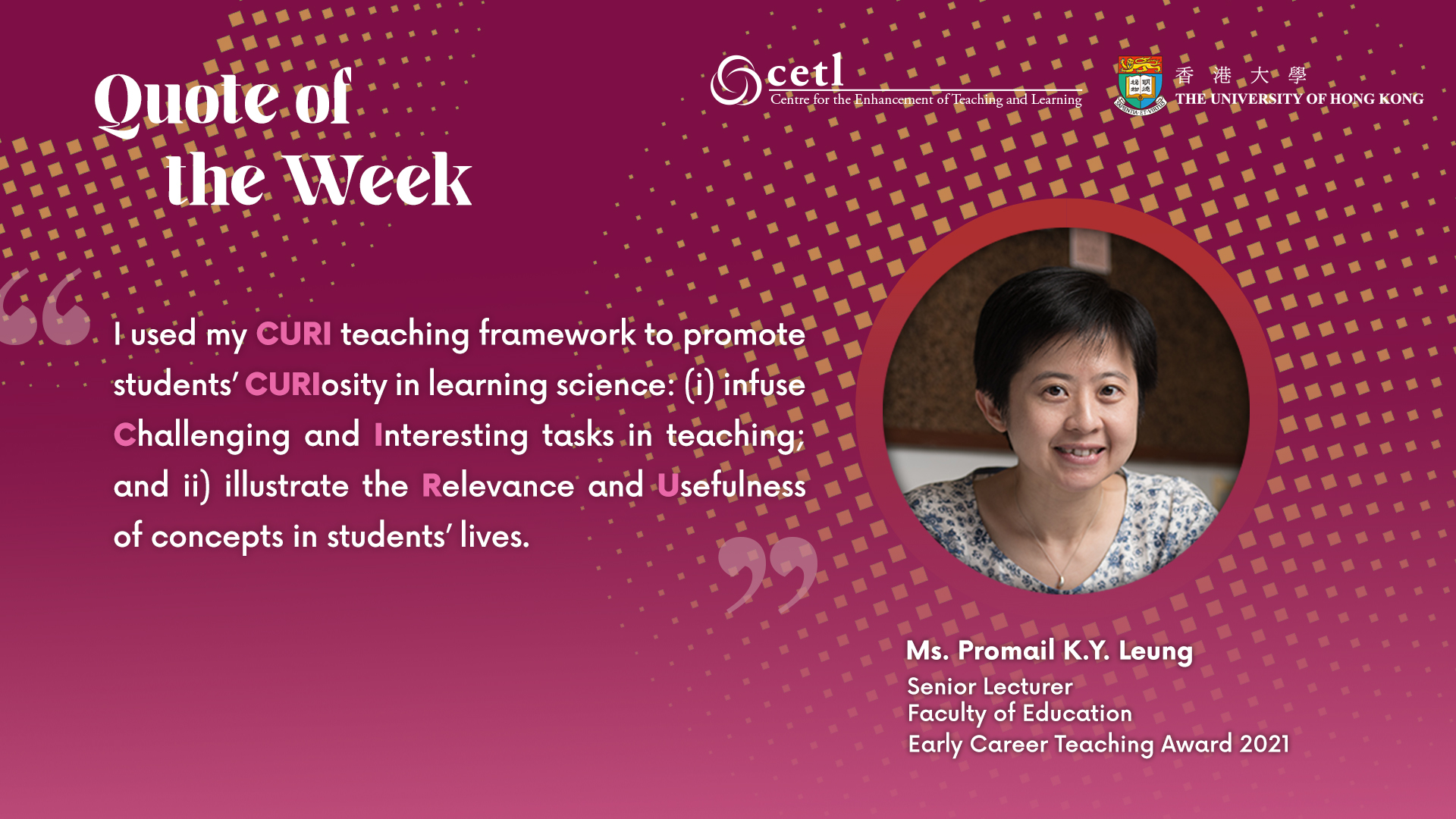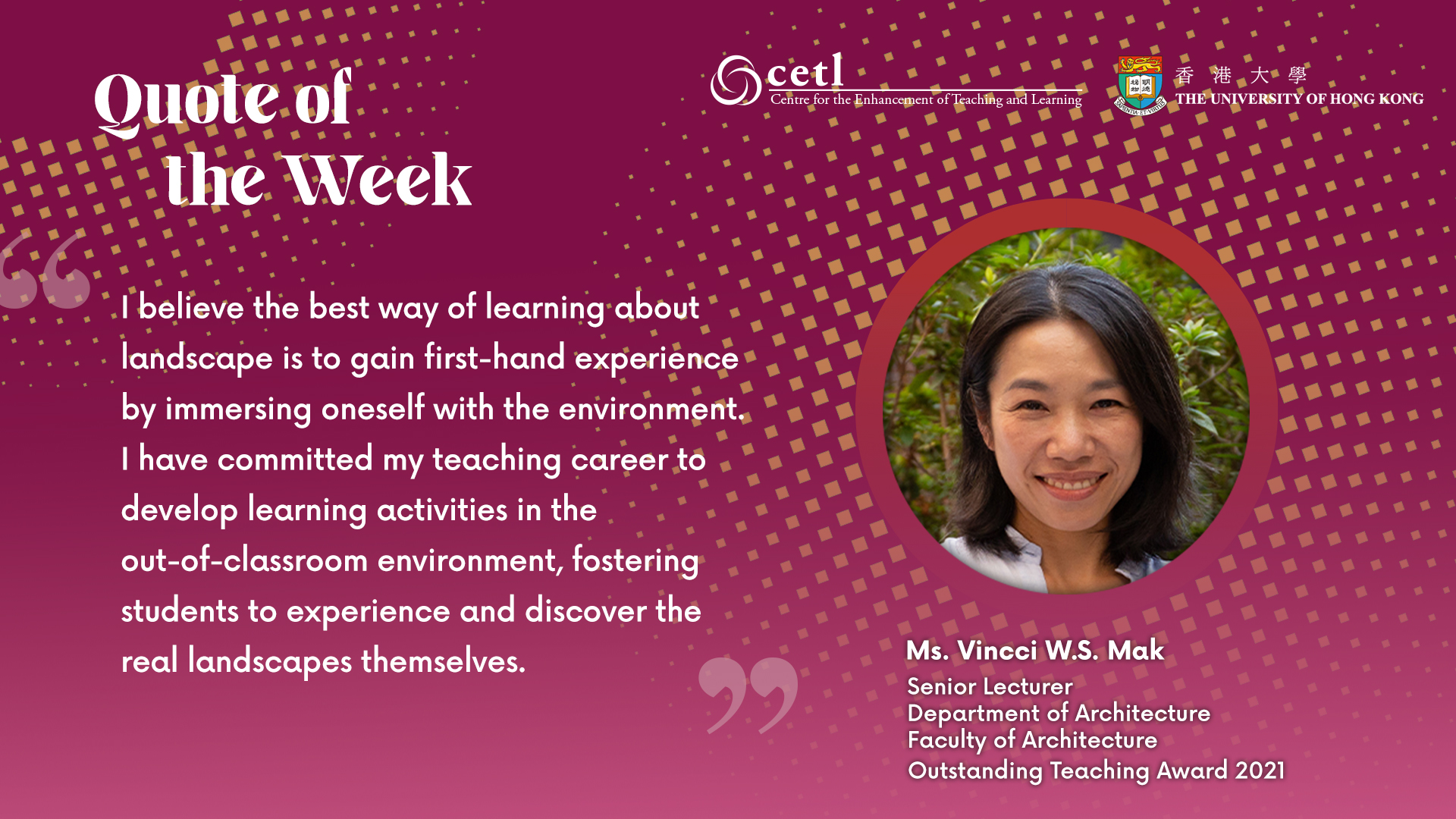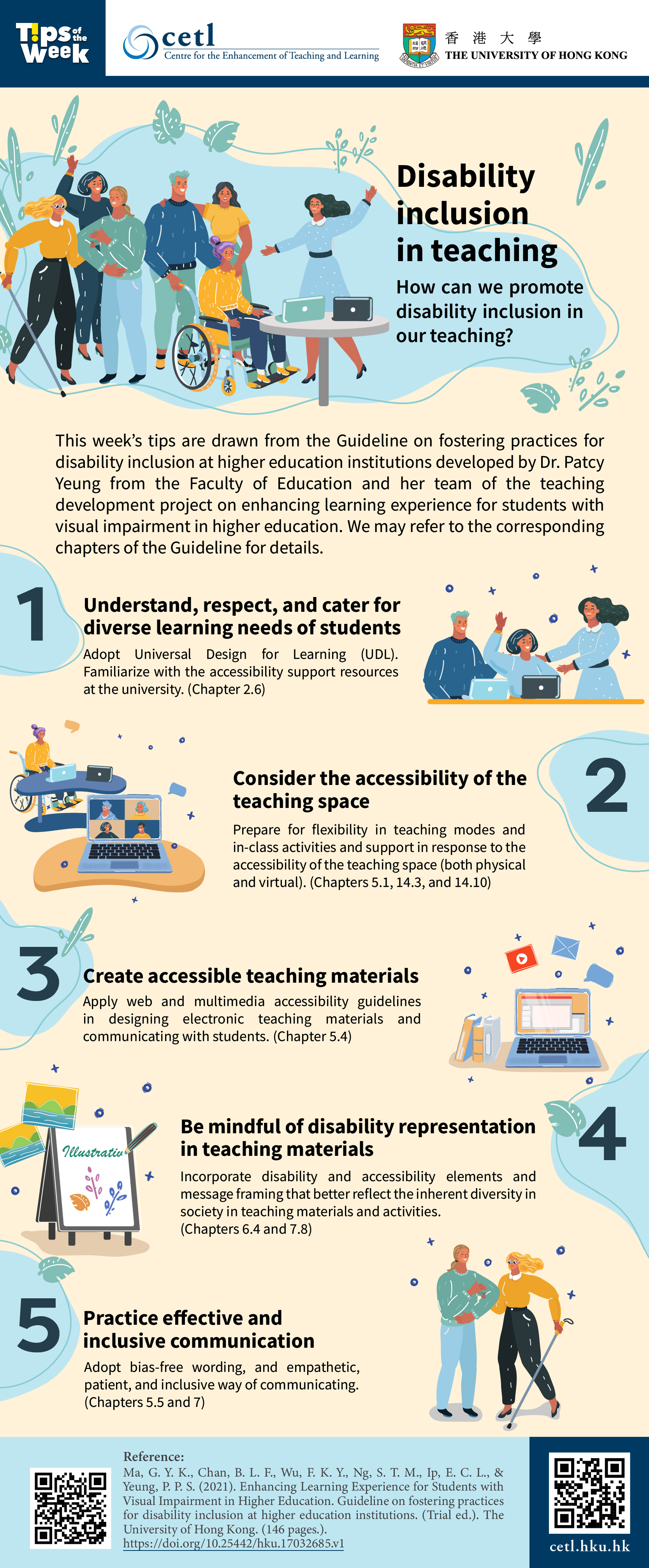
CETL Tips of the Week – Disability inclusion in teaching
How can we promote disability inclusion in our teaching? This week’s tips are drawn from the Guideline on fostering practices for disability inclusion at higher education institutions developed by Dr. Patcy Yeung from the Faculty of Education and her team of the teaching development project on enhancing learning experience for students with visual impairment in higher education. We may refer to the corresponding chapters of the Guideline for details.
- Understand, respect, and cater for diverse learning needs of students
Adopt Universal Design for Learning (UDL) principles in teaching to cater for diverse learning needs of students (Chapter 2.6) - Consider the accessibility of the teaching space
Prepare for flexibility in teaching modes and in-class activities and support in response to the accessibility of the teaching space (both physical and virtual). (Chapters 5.1, 14.3, and 14.10) - Create accessible teaching materials
Apply web and multimedia accessibility guidelines in designing electronic teaching materials and communicating with students. (Chapter 5.4) - Be mindful of disability representation in teaching materials
Incorporate disability and accessibility elements that better reflect the inherent diversity in society in teaching materials and activities. (Chapters 6.4 and 7.8) - Practice effective and inclusive communication
Adopt bias-free wording, and empathetic, patient, and inclusive way of communicating. (Chapters 5.5 and 7)
Reference:
Ma, G. Y. K., Chan, B. L. F., Wu, F. K. Y., Ng, S. T. M., Ip, E. C. L., & Yeung, P. P. S. (2021). Enhancing Learning Experience for Students with Visual Impairment in Higher Education. Guideline on fostering practices for disability inclusion at higher education institutions. (Trial ed.). The University of Hong Kong. (146 pages.). https://doi.org/10.25442/hku.17032685.v1.
Posting date: 17-Jun-2022




